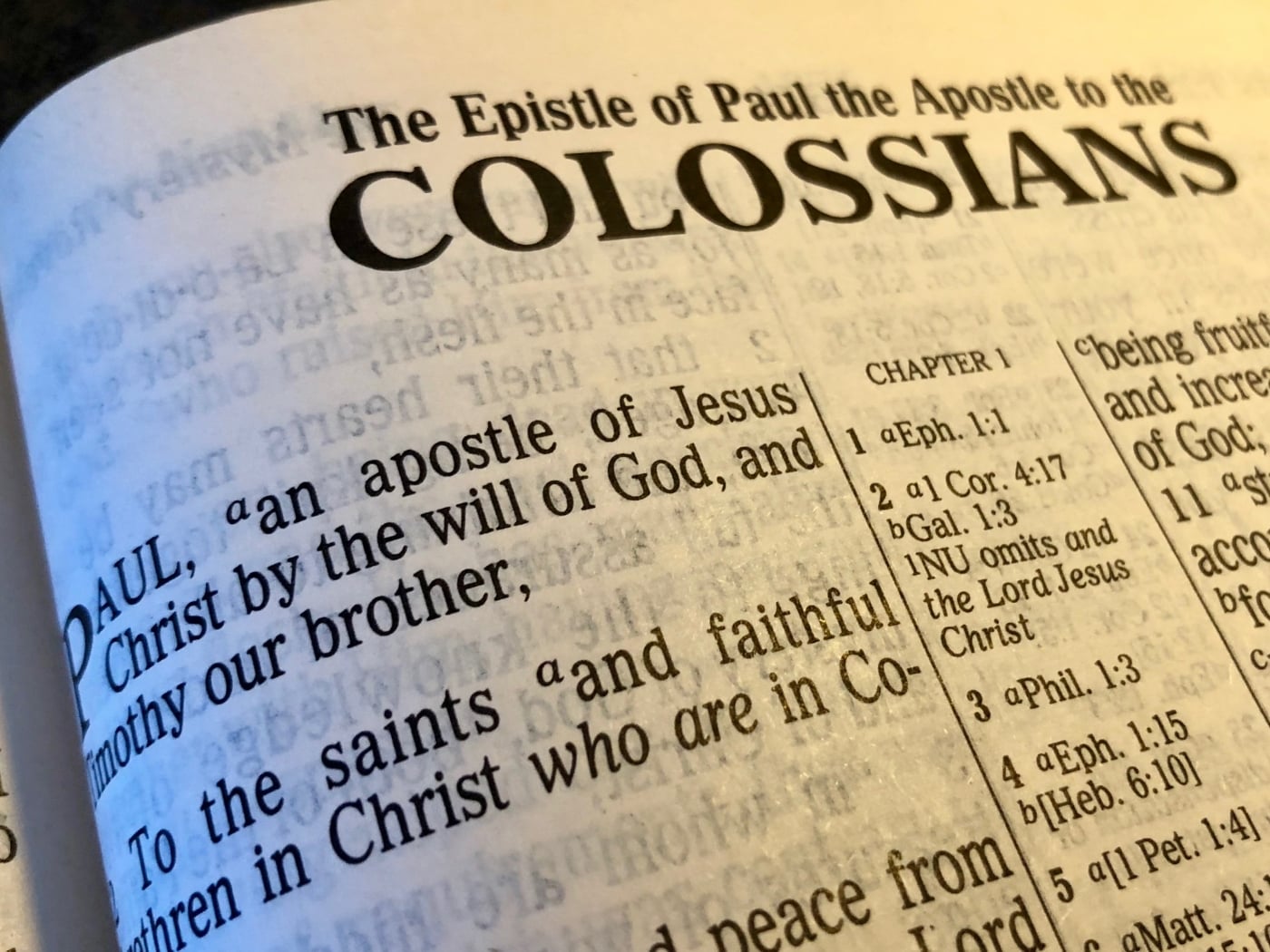Christ or Captivity: Knowledge according to Colossians 2:3–8

16 September 2025
by Dr Adi Schlebusch
Paul’s words in Colossians 2 strike with cutting clarity. It is evident from this passage that there is no middle ground, no neutral pursuit of truth. Knowledge is either grounded in Christ or enslaved to deceit. These verses are among the most explicit declarations of exiomatic epistemics: all wisdom and knowledge reside in Christ, and all philosophies not rooted in Him are vain.
Allow me to take you through passage with this verse-by-verse commentary:
Colossians 2:3:“[Christ,] in whom are hidden all the treasures of wisdom and knowledge.”The Greek text (TR) reads: ἐν ᾧ εἰσὶ πάντες οἱ θησαυροὶ τῆς σοφίας καὶ γνώσεως ἀπόκρυφοι. Notice the absoluteness: πάντες (“all”) treasures of wisdom and knowledge are in Christ. Not some, not most, but all. This demolishes the myth of autonomous reason. The text here confirms the Old Testament teaching that true knowledge begins with the fear of the LORD (Prov. 1:7). To deny Christ is to exchange wisdom for folly (Rom. 1:21–22). Moreover, it cuts directly against gnostic abstraction: the treasures are not secret codes for the “initiated,” but are stored in the incarnate Son, the Lord of history and the heir of David.
Colossians 2:4:“Now this I say lest anyone should deceive you with persuasive words.”The Greek term πιθανολογίᾳ ("persuasive words") refers to arguments that sound reasonable but are empty at their core. Paul warns that such rhetoric deceives only when one assumes neutrality in thought. Once that premise is granted, captivity follows. For example, today’s “persuasive words” would, given our current zeitgeist, include the egalitarian myth of the so-called “universal brotherhood of man,” the cosmopolitan erasure of nations, and the liberal denial of God-given distinctions rooted in the divinely-ordained created order. They may sound humane to the unregenerate masses, but in truth, they are poison.
Colossians 2:5:“For though I am absent in the flesh, yet I am with you in spirit, rejoicing to see your good order and the steadfastness of your faith in Christ.” Paul here highlights the intrinsic relationship between flesh and spirit right before speaking of τάξιν (order, formation) and στερέωμα (firmness, steadfastness). Faith in Christ establishes solidarity, order, and natural affections, not gnostic chaos. Christianity is not a disembodied spirituality, but an embodied faith that orders families, peoples, and cultures under Christ. The distinctly anti-gnostic theme of this verse is unmistakable: disorder, deracination, and rebellion against creational structures are marks of captivity. Firmness in Christ produces rooted th created order and covenantal continuity.
Colossians 2:6–7:
“As you therefore have received Christ Jesus the Lord, so walk in Him, rooted and built up in Him and established in the faith, as you have been taught, abounding in it with thanksgiving.” The verb περιπατεῖτε (“walk”) denotes an entire way of life - every aspect thereof. Epistemology is never abstract but lived out. Paul insists that the Colossians remain ἐρριζωμένοι καὶ ἐποικοδομούμενοι (“rooted and built up”), drawing from the soil of Christ, and continuing in the teaching they received. Here lies the anti-gnostic kinist application: to be “rooted” is to be planted, not uprooted into deracinated abstractions. God redeems us within the context and paradigm of creation’s order — in our families, and in our nations.
Colossians 2:8:
“Beware lest anyone cheat you through philosophy and empty deceit, according to the tradition of men, according to the basic principles (στοιχεῖα) of the world, and not according to Christ.”
The apsotle here unmasks the three foundations of false thought:
- The tradition of men — fallen human inheritance, unmoored from God.
- the “elemental principles of the world" — whether spirits, rudiments, or the building blocks of anti-Christian worldviews.
- anything not according to Christ — the decisive issue.
Every philosophy that begins with man, not Christ, is empty deceit. Whether the mystical elitism of ancient Gnosticism or the rootless egalitarianism of modern liberalism, whether Marxist cosmopolitanism or Enlightenment “neutral reason,” all such systems enslave, while Christ's truth alone can set us free.
The term στοιχεῖα in classical and Hellenistic Greek refers to the fundamental principles or building blocks of something, and in Colassians 2:8 it is the building blocks of thought itself that is at issue. As suchm the stoicheia must be understood as the epistemic foundations upon which a philosophy rests.
Colossians 2:3–8 reads as a manifesto that not only shatters the illusion of neutrality, but declares that all knowledge is axiomatic in nature. It furthermoe crushes gnostic dualism by rooting wisdom and order in the incarnate Son. Outside of Him, there is only plausible speech, πιθανολογίᾳ — captivating but empty. In Him, howver, are πάντες οἱ θησαυροὶ — all the treasures. For Paul, this is not abstract philosophy but the very foundation of life, order, and culture under Christ. To resist philosophical captivity requires confessing Christ as the only source of truth and the true order.